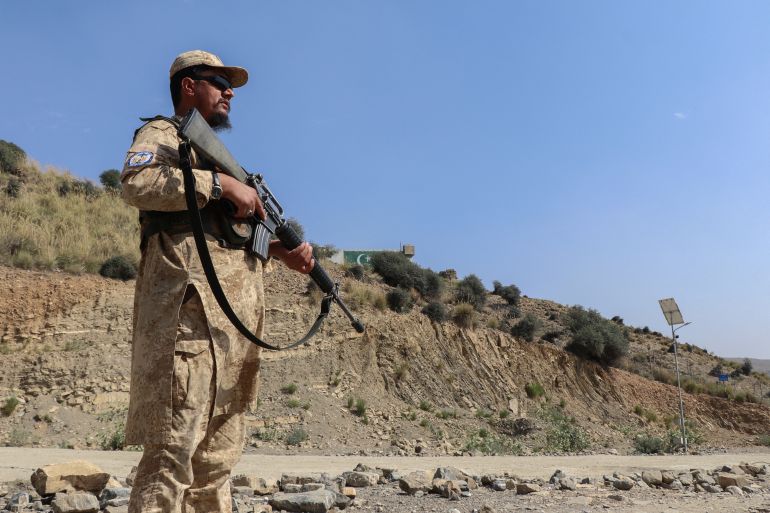Pakistan, Afghanistan to resume talks amid tensions over border clashes
Islamabad demands Kabul rein in the Pakistan Taliban as new round of talks begins under regional mediation.

By Abid Hussain
Published On 30 Oct 202530 Oct 2025
Save
Islamabad, Pakistan – Pakistan and Afghanistan have agreed to resume talks in Istanbul at the request of mediator Turkiye after earlier rounds between Islamabad and Kabul failed to resolve spiralling tensions between the neighbours that have exploded into military clashes in recent weeks.
Pakistani security officials said Islamabad’s delegation had been planning to depart from the Turkish city after a previous round of talks, spanning four days, ended in a deadlock. Now, however, the team will remain in Istanbul to continue negotiations on Thursday.
Recommended Stories
list of 4 itemsend of list
“Pakistan has once again stressed that Afghan soil should not be used for terrorism against Pakistan. We appreciate the constructive role of our hosts and remain committed to seeking a peaceful resolution in good faith,” a security official told Al Jazeera on condition of anonymity due to the sensitivity of the dialogue.
Afghan media have also reported, quoting sources, that after the intervention of host Turkiye and mediator Qatar, the two countries have agreed to resume their talks, which had ended earlier this week.
The two neighbours were engaged in a weeklong border conflict this month in which both sides suffered casualties. After the skirmishes, mediation by Qatar and Turkiye led to a ceasefire signed by the defence ministers of Pakistan and Afghanistan on October 19 in Doha in the presence of officials from both mediating nations.
The subsequent round of talks began in Istanbul on Saturday and continued for four days, but the parties failed to reach a consensus on Islamabad’s central demand that Kabul crack down on Tehreek-e-Taliban Pakistan (TTP), an armed group often called the Pakistan Taliban, which has been long accused by Pakistan of carrying out deadly attacks inside its territory.
Advertisement
The TTP emerged in 2007 during the US-led “war on terror” and has since waged a sustained campaign against the Pakistani state. Islamabad accuses Kabul of providing sanctuary not only to the TTP but also to other armed groups, including the Balochistan Liberation Army (BLA) and the ISIL (ISIS) affiliate in Khorasan Province (ISKP). The Afghan Taliban denies the allegations.
The Afghan Taliban, who took power for a second time in August 2021 after the withdrawal of US forces, has maintained that the TTP issue is an internal Pakistani matter. They have also long considered ISKP a rival and enemy.
After Pakistan confirmed the failure of the previous talks, Defence Minister Khawaja Asif issued a lengthy statement on X, warning of an all-out attack against the Afghan Taliban. He accused the “regime” of “blindly pushing Afghanistan into yet another conflict, just to retain its usurped rule and maintain the war economy that sustains them.”
“The warmongers amongst the Taliban regime, who have vested interests in the continuation of instability in the region, should know that they have probably misread our resolve and courage,” Asif wrote on Wednesday.
So far, the Afghan Taliban has not responded to Asif’s remarks.
Sweden-based security researcher Abdul Sayed, who studies armed groups in South and Central Asia, said Asif’s comments signalled that Pakistan was prepared to resume air strikes in Afghanistan but the decision to return to negotiations reflected a potential shift.
“The resumption of dialogue suggests either that the issue causing the earlier deadlock has been resolved or that the Pakistani delegation, at the mediators’ request, has shown flexibility in its stance to make another attempt to resolve the matter through negotiation,” Sayed told Al Jazeera.
Asif, in an interview to a TV channel on Wednesday, also alleged that India was waging a “low intensity” war in Pakistan through the Afghan Taliban, claiming Islamabad possesses evidence of Indian involvement. He, however, did not share any evidence to back his claim.
Pakistan and India engaged in a four-day conflict in May. While New Delhi accuses Islamabad of harbouring armed groups that launch cross-border attacks, Pakistan has historically alleged that India supports Baloch separatist groups demanding an independent Balochistan, Pakistan’s mineral-rich province.
This year, however, also saw a thaw in relations between the Afghan Taliban and the Indian government. A series of meetings and diplomatic exchanges culminated in a visit to New Delhi by Afghan Foreign Minister Amir Khan Muttaqi this month.
Advertisement
Sayed noted the recent escalation along the Pakistan-Afghanistan border began during Muttaqi’s visit to India.
“Pakistan has long maintained that India uses Afghan territory to create challenges for it. Even during the rule of the Afghan Taliban, traditionally Pakistan’s longstanding allies, these concerns persisted,” he said.
“Within the tensions of Islamabad-Kabul relations, India remains a crucial factor,” Sayed added.

